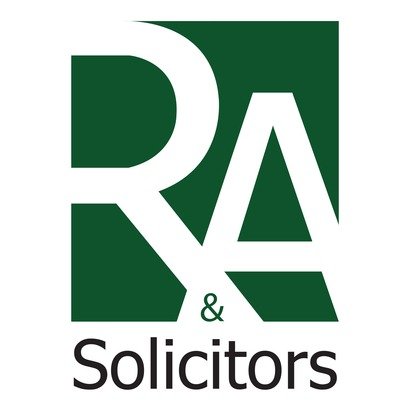Best Commercial Real Estate Lawyers in United Kingdom
Share your needs with us, get contacted by law firms.
Free. Takes 2 min.
Free Guide to Hiring a Real Estate Lawyer
Or refine your search by selecting a city:
List of the best lawyers in United Kingdom
About Commercial Real Estate Law in the United Kingdom
Commercial real estate law in the United Kingdom encompasses all legal matters related to the ownership, leasing, management, and disposal of commercial properties. These properties can include retail spaces, office buildings, industrial sites, and more. The UK's legal framework governing commercial real estate is complex, involving contracts, planning, financing, landlord and tenant issues, and environmental considerations. It is designed to ensure fair practices, protect investments, and facilitate efficient transactions in the commercial property market.
Why You May Need a Lawyer
There are several situations where individuals or businesses may require legal assistance in commercial real estate:
- Property Transactions: Whether buying or selling, a lawyer can help negotiate terms, conduct due diligence, and ensure compliance with all legal requirements.
- Leasing Agreements: Drafting or reviewing complex lease agreements to protect your interests as a landlord or tenant.
- Dispute Resolution: Handling disputes over property boundaries, breaches of contract, or tenant issues.
- Planning and Development: Navigating local planning regulations and obtaining necessary permits for development projects.
- Financing and Investment: Structuring finance deals and advising on investment opportunities and risks.
- Environmental Compliance: Ensuring that property uses comply with environmental laws and regulations.
Local Laws Overview
Key aspects of local laws relevant to commercial real estate in the UK include:
- Land Registration: The Land Registration Act 2002 requires property transactions to be registered to establish ownership and rights over land.
- Landlord and Tenant Act 1954: This act provides security of tenure for business tenants, ensuring rights and protections during lease renewals.
- Planning Permission: The Town and Country Planning Act 1990 governs planning applications and development control, requiring planning permission for significant property alterations.
- Stamp Duty Land Tax (SDLT): A tax on the purchase of property, with rates varying based on transaction value and property type.
- Environmental Regulations: Various laws, such as the Environmental Protection Act 1990, regulate land use and management to prevent environmental damage.
Frequently Asked Questions
1. What is the process for buying commercial property in the UK?
The process involves finding a property, making an offer, conducting due diligence, exchanging contracts, and completing the transaction with registration at the Land Registry.
2. How are commercial leases different from residential leases?
Commercial leases are generally more complex and negotiated terms, often involving longer terms with options for renewal and specific maintenance obligations.
3. What should I consider when drafting a commercial lease agreement?
Consider the lease term, rent amount, maintenance responsibilities, rights to assign or sublet, and any break clauses or renewal options.
4. Can a commercial lease be terminated early?
It depends on the terms of the lease. Some leases may include a break clause allowing early termination, while others may require negotiation and mutual consent.
5. How is Stamp Duty Land Tax calculated for commercial properties?
SDLT for commercial properties is calculated on a sliding scale based on the property value, with specific rates published by HM Revenue and Customs.
6. What are my options if a commercial tenant fails to pay rent?
You may enforce the lease terms, negotiate arrears repayment, or pursue legal action to recover the debt or repossess the property.
7. Do I need planning permission for commercial property renovations?
Significant renovations or changes in usage typically require planning permission from the local planning authority.
8. What is a right to light in commercial property?
A right to light is an easement that gives property owners the right to receive sufficient natural light through defined apertures.
9. How can environmental laws affect my commercial property?
Environmental laws may impact property use, requiring assessments or remediation if contamination is found, or influencing allowable development types.
10. How does business rates relief work for commercial properties?
Business rates relief schemes reduce rates payable and may apply to small businesses, charitable organizations, or certain property types under qualifying conditions.
Additional Resources
For further support, consider reaching out to:
- Royal Institution of Chartered Surveyors (RICS): Offers guidance and resources for professionals and the public.
- HM Land Registry: Provides property ownership information and assists with registration queries.
- The Law Society: Offers a solicitor search service and legal resources related to property law.
- Local Planning Authority: For queries related to planning permission and development control.
- Environmental Agency: Provides advice and resources related to environmental compliance and sustainability in property development.
Next Steps
If you require legal assistance in commercial real estate, consider taking the following steps:
- Consultation: Arrange consultations with commercial real estate solicitors to discuss your specific needs and challenges.
- Research: Gather information on your property and any legal documents to present a clear picture to your lawyer.
- Preparation: Make a list of questions and objectives to maximize the effectiveness of your legal consultations.
- Engagement: Once you have selected a lawyer, formally engage their services and ensure you agree on timelines, costs, and communication expectations.
- Follow-up: Regularly follow up with your lawyer to ensure that the legal process is moving forward as planned.
By understanding the landscape and seeking appropriate legal assistance, you can navigate the complexities of commercial real estate transactions and management more effectively.
Lawzana helps you find the best lawyers and law firms in United Kingdom through a curated and pre-screened list of qualified legal professionals. Our platform offers rankings and detailed profiles of attorneys and law firms, allowing you to compare based on practice areas, including Commercial Real Estate, experience, and client feedback.
Each profile includes a description of the firm's areas of practice, client reviews, team members and partners, year of establishment, spoken languages, office locations, contact information, social media presence, and any published articles or resources. Most firms on our platform speak English and are experienced in both local and international legal matters.
Get a quote from top-rated law firms in United Kingdom — quickly, securely, and without unnecessary hassle.
Disclaimer:
The information provided on this page is for general informational purposes only and does not constitute legal advice. While we strive to ensure the accuracy and relevance of the content, legal information may change over time, and interpretations of the law can vary. You should always consult with a qualified legal professional for advice specific to your situation.
We disclaim all liability for actions taken or not taken based on the content of this page. If you believe any information is incorrect or outdated, please contact us, and we will review and update it where appropriate.
Browse commercial real estate law firms by city in United Kingdom
Refine your search by selecting a city.














